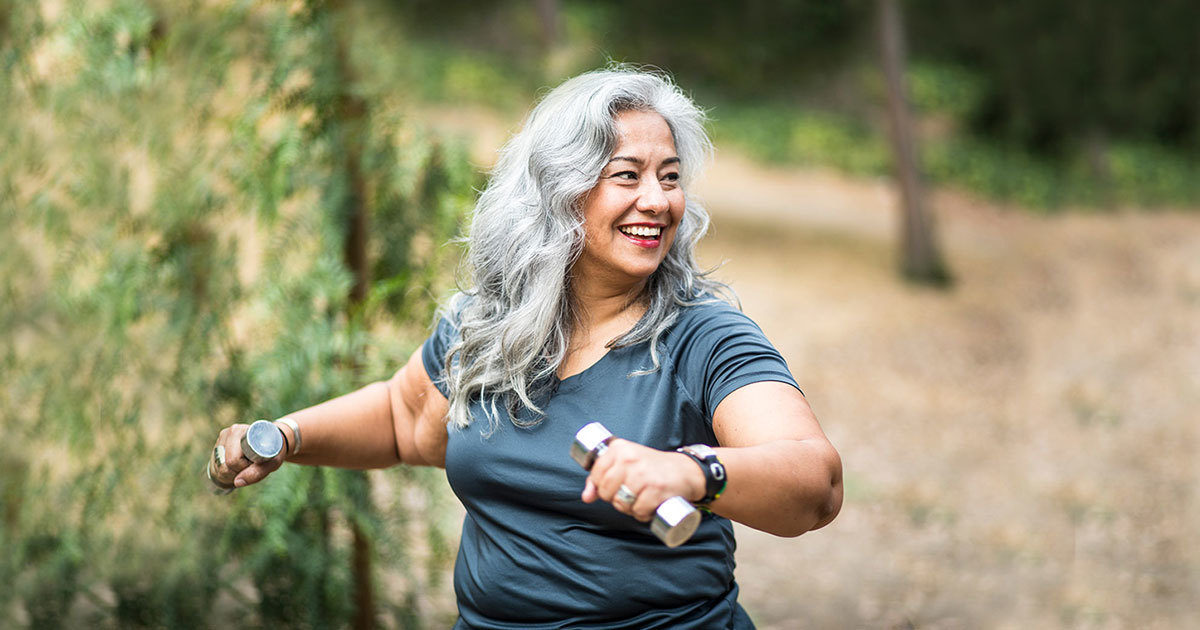Lifestyle Changes You Can Make to Reduce Joint Pain
What you do – or don’t do – every day can have a major impact on your joints and the level of pain you experience.

According to the Centers for Disease Control and Prevention, between 2013-2015, an estimated 54.4 million US adults (22.7%) annually were diagnosed by a doctor with some form of chronic joint pain due to arthritis, rheumatoid arthritis, gout, lupus or fibromyalgia. While joint pain may become more prevalent with age, it does not have to be inevitable. There are lifestyle changes you can make to reduce symptoms and improve function.
The Musculoskeletal Institute at UT Health Austin is designed to provide a collaborative approach to evaluating and treating joint conditions. The team is comprised of associate providers, physical therapist, dietician, health social workers and led by orthopedic surgeons. We have designed this center to make individualized recommendations based on your lifestyle and personal goals, whether or not that includes surgery, and be your partner along the way!
Lifestyle changes your care team may suggest:
- Maintain a healthy weight –According to The American Academy of Orthopaedic Surgeons (AAOS), obesity is one of the most common diseases that affect bone and joint health. Not only will shedding excess weight relieve some of the pressure put on your joints, it can slow down joint degeneration. We know that weight loss can be especially difficult when you are suffering from joint mobility and functionality issues, but you can feel assured your care team will work with you to set achievable goals and a plan to help you get there.
- Exercise – There are more benefits to exercise than just weight loss. Regular exercise increases strength and flexibility, reduces pain and helps combat fatigue and other symptoms of arthritis. Depending on the severity of your joint pain, going to the gym or to a workout class may be off the table. The good news is, with a solid understanding of exercises that relieve stiffness, enhance blood flow and increase your ability to move your joints through their full range of motion, you will be well on your way to reduced pain in no time. Your doctor or physical therapist may recommend a range of low-impact exercises, such as water aerobics, walking, cycling or stretching to help flex your joints and improve health without adding further stress. Keep in mind that periods of rest may be necessary during times when symptoms flare up, but complete bed rest is not recommended.
- Maintain a healthy diet – One of the most effective ways to mitigate chronic joint pain is to adjust your diet to include more foods and supplements that aid in reducing inflammation in the body. Omega-3 fatty acids found in foods like fish, chia seeds soybeans and walnuts are great for combating inflammation in the joints to help reduce pain and stiffness. Fresh fruits and vegetables are also loaded with antioxidants, that counteract damage, protect healthy cells and are helpful in slowing the effects of aging. Try to limit (or ideally completely remove) processed foods, trans fats and added sugars while working to incorporate healthier foods to lose weight and reduce arthritis symptoms. Your dietician will work with you to develop a realistic eating plan to help you reach your weight loss goals and find pain relief.
- Quit smoking – Smoking slows down the body’s natural healing mechanisms and reduces blood flow, which makes it more difficult to recover from injuries and inflammation. Certain types of joint pain, more specifically in the back and neck, may also be exacerbated by the symptom of coughing that many smokers have. If you smoke, continuing to do so will aggravate arthritis symptoms through triggering inflammatory processes that affect every cell in the body. Not only will quitting smoking have immediate positive effects on your overall health, you will be doing your joints a favor.Talk with your doctor about how you can successfully quit.
- Manage stress – Stress releases chemicals that can affect your body’s immune system, and can cause inflammation. As a result, your arthritic pain may flare up the more stress you are dealing with. Going through life changes such as moving, the death of a loved one, financial concerns, and even a vacation require us to adapt, change routine, and can cause worry. There are several ways to reduce stress, such as meditation, yoga, or other relaxation techniques. According to the National Institutes of Health (NIH), studies have found that the practice of mindfulness meditation is helpful for some people with joint pain. When stress is reduced inflammation and thus swelling and pain also decrease. Here are some stress relieving practices you can start using today:
- Breathe slowly for two minutes. Focus on a long exhale and then allow the inhalation to enter your lungs gently.
- Channel your stress into something creative. Paint, doodle, write, or cook
- Listen to music, watch a movie, or engage in some activity that allows you to stop focusing on what is worrying you
- Get outdoors. Go for a walk in the park and feel the sun on your face
- Laugh! Watch a comedy or spend time with someone who makes you laugh
- Practice meditation or yoga to help channel and release stressful thoughts or tension.
To learn more about UT Health Austin’s Musculoskeletal Institute or to make an appointment, call 1-833-UT-CARES (1-833-882-2737) or visit here.
Sources: